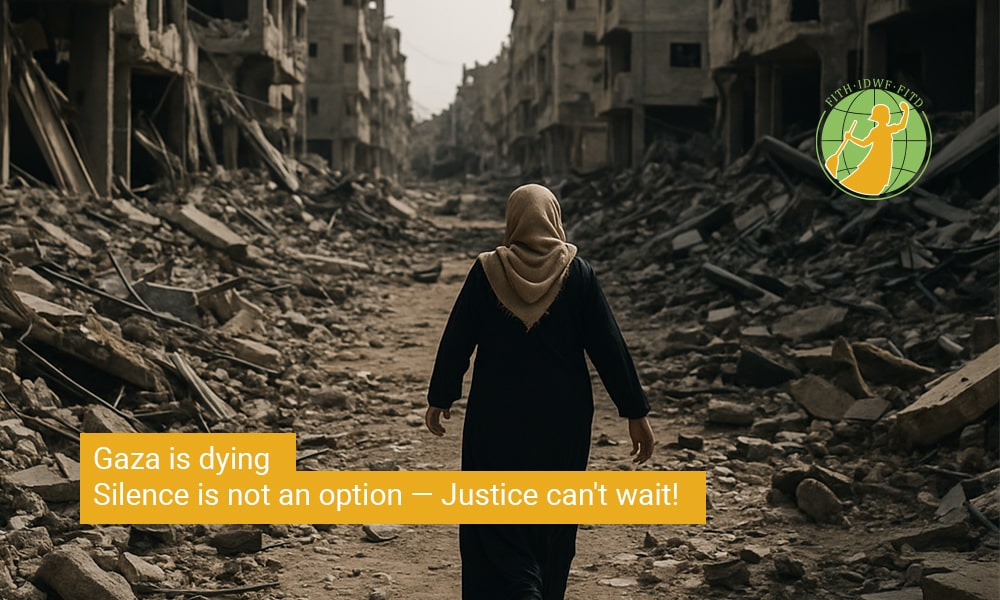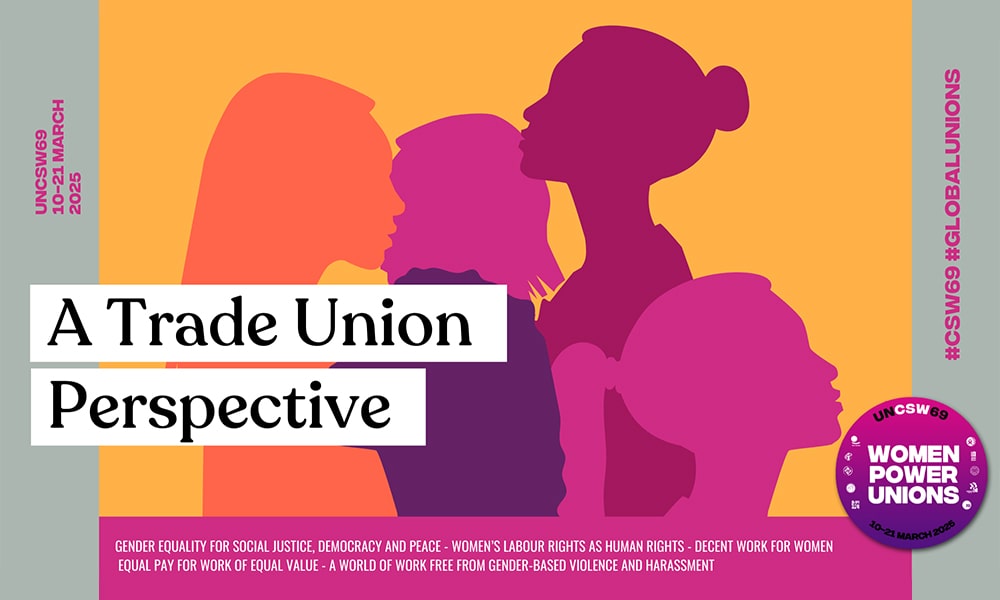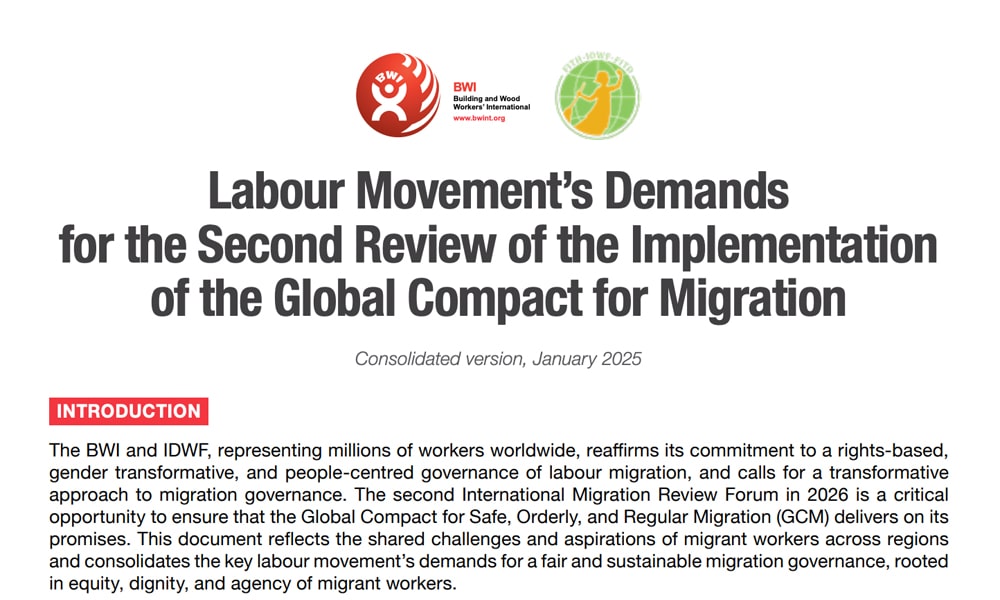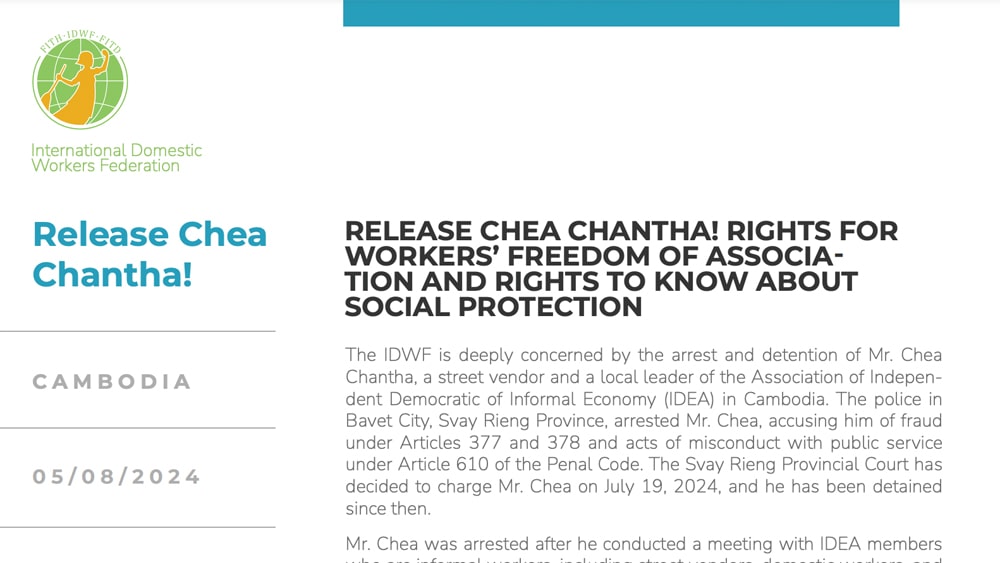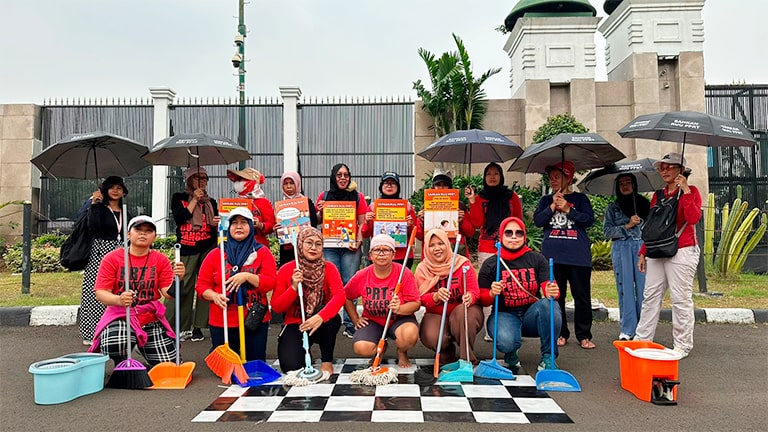
For a law to protect DWs and end modern slavery NOW!
The International Domestic Workers Federation (IDWF) stands in solidarity with domestic workers in Indonesia and strongly support the hunger strike they will begin on August 14th to demand the urgent approval of the Law on the Protection of Domestic Workers (RUU PPRT), which has been stalled in parliament since 2004.
Domestic workers in Indonesia have been fighting for nearly twenty years for a legal umbrella to protect them from all forms of violence and abuse. Faced with indifference from decision-makers, several domestic workers’ organizations and civil society groups have called for a hunger strike, forming the Hunger Strike Alliance for the Domestic Workers Act. The hunger strike is taking place in front of the national legislature (DPR/MPR RI) building, and will continue until the PPRT bill is passed into law. Hunger strikes are powerful forms of non-violent protest and have a severe effect on the bodies of protestors. They are usually a last resort undertaken by movements when the people aren’t heard, and domestic workers in Indonesia must be heard now.
Indonesia has the largest number of domestic workers employed worldwide: 5 million. Most of them are women and girls from poor rural areas who take care of upper-middle-class families in big cities. Due to the lack of a protective law, they are employed informally and often face unfair labor treatment: extremely low wages, long working hours, no time off, no social protection, no access to healthcare, poor living conditions. But that’s not all: Indonesian domestic workers are subjected to constant violations of their human rights, including violence and harassment, forced labor, modern slavery, child labor, and even human trafficking.
The National Advocacy Network for Domestic Workers (Jala PRT) recorded 1,635 cases of multi-violence against domestic workers which resulted in fatalities during 2017-2022. Apart from that, there were 2,021 cases of physical and psychological violence, and 1,609 cases of economic violence. Also, according to the Indonesian Migrant Workers’ Union, domestic workers are the biggest victims of human trafficking, amounting 1,519 cases from 2012 to 2020. Today, Jala PRT are handling the cases of 5 abused workers seeking justice, and have mobilized a crowdfunding effort to support their legal, medical, and survival fees.
This data is just the tip of the iceberg, since there are still many cases that go unreported. Plus, most legal processes against abusive employers or traffickers of domestic workers are stalled; and in those cases where there have been a resolution, the sentences received by perpetrators didn’t reflect a sense of justice for the victims/survivors.


